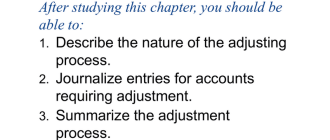
Strategies for Handling an Uncooperative Adjuster.
When handling an insurance claim, it can be frustrating to encounter an uncooperative adjuster. An uncooperative adjuster is someone who is unwilling to provide the necessary information or assistance to help you navigate through the claims process. However, there are effective strategies that you can employ to deal with this challenging situation.
Stay calm and composed: Dealing with an uncooperative adjuster can be incredibly frustrating, but it is important to remain calm and composed throughout the process. Losing your temper can only make the situation worse and hinder your chances of reaching a satisfactory resolution.
Gather evidence: In order to strengthen your case and demonstrate the validity of your claim, it is essential to gather as much evidence as possible. This may include photographs, medical records, witness statements, or other relevant documentation. Having a solid foundation of evidence can help counter the uncooperative adjuster’s resistance and compel them to take your claim seriously.
Seek legal advice: If you find that your attempts to communicate and negotiate with the uncooperative adjuster are unsuccessful, it may be advisable to seek legal advice. An experienced attorney specializing in insurance claims can provide guidance and advocate on your behalf. They can help navigate the complexities of the claims process and ensure that your rights are protected.
Dealing with an uncooperative adjuster can be a challenging and time-consuming task. However, by staying calm and collected, gathering compelling evidence, and seeking legal advice if necessary, you can increase your chances of successfully resolving your insurance claim.
Understanding the Adjuster’s Role
When dealing with an uncooperative adjuster, it is important to understand their role in the claims process. The adjuster is a representative of the insurance company and their job is to investigate the claim, determine liability, and negotiate a settlement.
While their role is to handle claims, it is not uncommon for adjusters to act uncooperatively. This can be frustrating and can make the claims process more difficult. However, understanding their role can help you navigate the situation more effectively.
One strategy for handling an uncooperative adjuster is to remain calm and professional. It is important to keep in mind that adjusters are often dealing with a heavy workload and may be overwhelmed. By remaining calm and professional, you can increase the chances of having a productive conversation and reaching a resolution.
Another strategy is to be prepared and proactive in providing documentation and evidence to support your claim. This can help counter any arguments or denials from the adjuster. By providing clear and concise evidence, you can strengthen your case and increase the chances of a fair settlement.
In addition, it can be helpful to communicate in writing when dealing with an uncooperative adjuster. This can provide a record of the conversations and ensure that all important information is properly documented. It can also help keep the adjuster accountable for their actions.
Overall, understanding the adjuster’s role and implementing effective strategies for handling an uncooperative adjuster can help you navigate the claims process and increase the chances of a fair settlement. By remaining calm, being proactive, and communicating effectively, you can better advocate for your rights and interests.
|
– The adjuster’s role is to investigate the claim, determine liability, and negotiate a settlement. – Remain calm and professional when dealing with an uncooperative adjuster. – Be prepared and proactive in providing documentation and evidence to support your claim. – Communicate in writing to keep a record of conversations and hold the adjuster accountable. – Understanding the adjuster’s role and implementing effective strategies can increase the chances of a fair settlement. |
Importance of Communication
Effective communication is crucial when handling an uncooperative adjuster. Without clear and open lines of communication, it can be challenging to resolve issues and reach a fair settlement.
When an adjuster is uncooperative, it can feel frustrating and overwhelming. However, maintaining a calm and professional tone while communicating can help alleviate some of the tension. It is important to clearly express your concerns and needs, making sure to use strong and assertive language.
Listening is also a vital aspect of communication. Take the time to understand the adjuster’s perspective and concerns. By actively listening, you can better address their objections and find common ground for negotiation.
In addition, documenting all communication is crucial when dealing with an uncooperative adjuster. Keep track of phone conversations, emails, letters, and any other form of communication. This documentation can serve as evidence if a dispute arises later.
Finally, consider utilizing alternative communication methods if traditional routes are not working. This may involve speaking to a higher authority within the insurance company or seeking assistance from a lawyer. Exploring these avenues can help to break through any communication barriers and move towards a resolution.
In summary, effective communication plays a vital role in handling an uncooperative adjuster. By clearly expressing your concerns, actively listening, and documenting all communication, you can increase the chances of reaching a fair and satisfactory outcome.
Gathering Evidence to Support Your Claim
When handling a claim with an uncooperative adjuster, it is crucial to gather as much evidence as possible to support your case. This evidence will serve as proof of the damages you have incurred and will help you build a strong argument in your favor.
Here are some strategies you can employ to gather the necessary evidence:
- Document the damages: Take clear photographs or videos of the damages to your property or injuries sustained. Make sure to capture the extent of the damage from various angles.
- Gather witness statements: If there were any witnesses to the incident or accident, obtain their statements regarding what they saw or experienced. These witness accounts can provide additional credibility to your claim.
- Collect relevant documents: Keep a record of all relevant documents, such as medical bills, repair estimates, and receipts for replacement items. These documents will help demonstrate the financial impact of the damages you have suffered.
- Obtain expert opinions: Seek out expert opinions or evaluations from professionals in the relevant field. For example, if you’ve suffered property damage, consult with a reputable contractor or appraiser who can assess the severity of the damages and provide a professional opinion.
- Preserve physical evidence: If there are any physical pieces of evidence, such as a defective product or a damaged vehicle, it is vital to preserve them in their original condition. These physical items can serve as crucial evidence in your case.
Remember to organize and keep copies of all the evidence you gather. This will make it easier to present your case and ensure that all relevant information is included.
By gathering solid evidence, you can strengthen your position when dealing with an uncooperative adjuster. Presenting a well-documented and supported claim will increase your chances of a favorable outcome.
Documenting All Damages
When handling an uncooperative adjuster, it is essential to document all damages thoroughly. This documentation will serve as evidence and ensure that the adjuster cannot deny or downplay the extent of the damages.
One effective way to document damages is by taking clear and detailed photographs. Take pictures from various angles and distances to capture the full extent of the damage. It is also helpful to include close-up shots to highlight any specific areas of concern. Make sure that the photographs are well-lit and of high quality.
In addition to photographs, it is crucial to create a written record of the damages. Use descriptive language to detail the specific areas affected, the severity of the damage, and any other relevant information. Be as specific as possible, providing measurements, dimensions, and any observable subjective issues.
| January 15, 2022 | Cracks in the ceiling | 1 |
| January 15, 2022 | Water stains on the walls | 2 |
| January 15, 2022 | Warped wooden flooring | 3 |
By creating a clear and organized record, you can effectively present the damages to an uncooperative adjuster. This documentation will make it difficult for them to dispute the extent of the damages or minimize their responsibility.
Presenting Your Case to the Adjuster
When dealing with an uncooperative adjuster, it’s important to have effective strategies in place for presenting your case. Here are some tips to help you navigate this challenging situation:
1. Gather and organize your evidence:
Before presenting your case to the adjuster, gather all relevant evidence to support your claim. This may include photographs, videos, medical records, witness statements, and any other documentation that strengthens your case. Organize these documents in a clear, logical manner to make it easier for the adjuster to review and understand the facts.
2. Clearly state your position:
When presenting your case, clearly and concisely state your position. Use strong and persuasive language to articulate your side of the story and highlight the key points of your claim. Emphasize any legal rights or obligations that support your position.
3. Respond calmly and professionally:
Dealing with an uncooperative adjuster can be frustrating, but it’s important to remain calm and professional throughout the process. Avoid becoming confrontational or hostile, as this can damage your credibility and hinder the resolution of your claim. Instead, respond calmly to any challenges or objections raised by the adjuster, and provide rational explanations or counterarguments to support your position.
4. Be prepared for negotiation:
Adjusters often have the authority to negotiate settlement offers, so be prepared for this possibility. Research and understand the fair value of your claim, taking into account any applicable laws or regulations. This will enable you to negotiate effectively and seek a reasonable settlement that adequately compensates you for your losses.
5. Consider seeking professional assistance:
If you’re facing an uncooperative adjuster and feel overwhelmed, consider seeking professional assistance. An attorney or public adjuster can provide expert guidance and representation, ensuring your rights are protected and helping you navigate the complexities of the claims process.
Remember, presenting your case to an uncooperative adjuster requires patience, preparation, and clear communication. By following these strategies, you can increase your chances of achieving a favorable outcome for your claim.
Preparing a Detailed Claim
When dealing with an uncooperative adjuster, it is essential to be prepared and provide a detailed claim. By presenting all the necessary information in a clear and concise manner, you can increase the chances of resolving the issue in your favor. Here are some strategies for handling this situation:
- Collect all relevant documentation: Gather any paperwork, photos, or videos that support your claim. This might include receipts, estimates, medical reports, or witness statements. The more evidence you have, the stronger your case.
- Provide a comprehensive timeline: It is important to create a detailed chronology of events related to the incident. Include dates, times, and locations, as well as any relevant conversations or actions that took place. This will help establish the sequence of events and demonstrate the validity of your claim.
- Be organized and thorough: Ensure that your claim is well-organized and easy to follow. Use clear headings, subheadings, and bullet points to outline your arguments. Be sure to address each point raised by the adjuster and provide supporting evidence for each claim you make.
- Include accurate cost estimates: If your claim involves monetary damages, it is crucial to provide accurate cost estimates for repairs, replacements, or medical expenses. Obtain multiple quotes if necessary and provide detailed breakdowns of the costs involved.
- Consider hiring a professional: If you feel overwhelmed or unsure about handling the claim yourself, consider seeking help from a professional, such as a public adjuster or an attorney specializing in insurance claims. They can guide you through the process and advocate on your behalf.
By preparing a detailed claim, you can present a strong case to an uncooperative adjuster. Remember to stay calm and persistent throughout the process, and be prepared to negotiate and provide additional information if requested. With the right strategies and a well-prepared claim, you can increase your chances of a successful outcome.
Negotiating a Fair Settlement
When it comes to dealing with an uncooperative adjuster, having effective strategies for negotiating a fair settlement is essential. Here are some key tips for handling this challenging situation:
1. Gather Evidence: Before entering into negotiations, it’s crucial to gather all the necessary evidence to support your claim. This may include photographs, medical records, witness statements, and any other relevant documentation. Having strong evidence will strengthen your position and give you leverage during negotiations.
2. Understand Your Policy: Familiarize yourself with your insurance policy and understand the coverage and benefits you are entitled to. This knowledge will help you make a stronger case and will prevent the adjuster from taking advantage of any loopholes in your policy.
3. Be Firm and Assertive: During negotiations, it’s important to remain firm and assertive. Clearly communicate your expectations and the compensation you believe is fair. Don’t let the adjuster intimidate or pressure you into accepting a lower settlement than you deserve.
4. Stay Calm and Professional: While emotions can run high during negotiations, it’s crucial to remain calm and professional. Losing your temper or becoming defensive will only hinder the negotiation process. Present your case in a logical and composed manner to maintain credibility.

5. Consider Hiring an Attorney: If negotiations are not progressing in a positive direction or if you feel overwhelmed, it may be beneficial to hire an attorney who specializes in insurance claims. They can provide expert advice, handle negotiations on your behalf, and ensure that your rights are protected.
6. Document Everything: Throughout the negotiation process, make sure to document every conversation and correspondence with the adjuster. This includes keeping records of phone calls, emails, and any written communication. These records will be valuable evidence in case further action is necessary down the line.
By following these strategies, you can increase your chances of negotiating a fair settlement with an uncooperative adjuster. Remember to stay focused and persistent in pursuing the compensation you deserve.
Knowing Your Rights
When dealing with an uncooperative adjuster, it is crucial to know your rights as a policyholder. Understanding the laws and regulations that govern insurance claims can help you navigate the process more effectively and ensure that you are being treated fairly.
One of the first things to know is that you have the right to be treated with respect and fairness. An uncooperative adjuster may try to intimidate or frustrate you, but remember that you are entitled to professional and courteous communication.
Additionally, you have the right to a timely resolution of your claim. If the adjuster is deliberately delaying the process or refusing to provide the necessary information, you can escalate the issue to their supervisor or file a complaint with the relevant regulatory authority.
Another important right is the right to request a second opinion. If you believe that the adjuster’s assessment of your damages is unfair or inaccurate, you have the right to ask for another adjuster or even hire your own independent appraiser to assess the damages.
Finally, it is crucial to understand the fine print of your insurance policy. Knowing the coverage limits, exclusions, and any relevant deadlines can help you stay informed and ensure that the adjuster is handling your claim appropriately. If you suspect that the adjuster is acting in bad faith, you may need to consult with an attorney who specializes in insurance law to protect your rights.
Seeking Legal Assistance if Necessary
If you have followed all the appropriate strategies for handling an uncooperative adjuster and are still encountering roadblocks, it may be time to seek legal assistance.
Consulting with an attorney who specializes in insurance claims can help you navigate the complex legal landscape and ensure that your rights are protected. They can provide guidance on the best course of action and help you negotiate with the adjuster on your behalf.
When seeking legal assistance, it is important to find a lawyer who has experience dealing with adjusters and insurance companies. They will understand the tactics and strategies commonly used by adjusters to deny or delay claims and can counteract them effectively.
Hiring a lawyer can also signal to the adjuster that you are serious about pursuing your claim and are willing to take legal action if necessary. This may prompt the adjuster to take your case more seriously and be more cooperative in resolving the claim.
Remember, seeking legal assistance should be a last resort after exhausting all other options. It is important to document all interactions with the adjuster and gather any evidence that supports your claim before involving an attorney.
In conclusion, if you have tried all the strategies for dealing with an uncooperative adjuster and are still facing resistance, seeking legal assistance can be a helpful next step. An attorney specializing in insurance claims can provide guidance, negotiate on your behalf, and ensure that your rights are protected throughout the claims process.
When to Involve an Attorney
Dealing with an uncooperative adjuster can be frustrating and time-consuming. If you have tried various strategies to work with the adjuster and have not been successful in resolving your claim, it may be time to involve an attorney.
An attorney can provide you with guidance and support throughout the claims process. They have experience dealing with uncooperative adjusters and can take legal action if necessary. Here are a few signs that it may be time to involve an attorney:
- The adjuster consistently ignores or delays your communications.
- Your claim has been denied without a valid reason.
- The adjuster is refusing to provide you with the necessary documentation or information about your claim.
- The adjuster is pressuring you to accept a low settlement offer.
- Your claim involves complex legal issues that require professional expertise.
By involving an attorney, you can level the playing field and ensure that your rights are protected. An attorney can negotiate with the adjuster on your behalf, gather evidence to support your claim, and represent your interests in court if necessary.
Remember, insurance companies have teams of adjusters and lawyers working to protect their interests. It’s important to have someone on your side who knows the ins and outs of the claims process and can fight for the compensation you deserve.
If you are unsure whether it is necessary to involve an attorney, consider scheduling a consultation with one. Most attorneys offer free initial consultations, where they can evaluate your case and provide you with advice on how to proceed.
Dealing with an uncooperative adjuster can be stressful, but with the right strategies and legal support, you can increase your chances of obtaining a fair settlement for your claim.
Being Persistent and Professional
Dealing with an uncooperative adjuster can be frustrating and challenging. However, it is important to remain persistent and professional throughout the process to achieve a successful outcome. Here are some strategies for effectively handling an uncooperative adjuster:
- Stay calm and composed: It is essential to maintain a professional and level-headed approach when dealing with an uncooperative adjuster. Emotions can easily escalate the situation and hinder the progress of the claim.
- Document everything: Keep detailed records of all communication and interactions with the adjuster. This includes dates, times, and summaries of phone conversations, emails, and letters exchanged. Having a thorough record can help protect your rights and strengthen your case.
- Follow up promptly: If the adjuster is not responding or providing the necessary information, be persistent and follow up regularly. Send polite reminders and requests for updates, ensuring that you maintain a professional tone in all communication.
- Seek assistance if needed: If you are making little progress with the adjuster on your own, consider seeking assistance from a supervisor or manager within the insurance company. They may be able to provide guidance or intervene to move the process forward.
- Engage legal representation, if necessary: In more complex cases or when dealing with a particularly uncooperative adjuster, it may be advisable to consult with an attorney who specializes in insurance claims. They can provide guidance on your rights and help navigate the process.
By staying persistent and professional when dealing with an uncooperative adjuster, you can increase your chances of achieving a positive resolution to your claim. Remember to advocate for your rights, document all interactions, and seek assistance when necessary.
Effective Communication Techniques
When dealing with an uncooperative adjuster, effective communication is key to successfully resolving issues and reaching a fair settlement. Here are some strategies to consider:
| 1. Active listening | Listening attentively and showing understanding of the adjuster’s position can help establish rapport and build trust. This can lead to more productive discussions and a greater likelihood of cooperation. |
| 2. Clearly state your objectives | Be upfront about your goals and expectations. Clearly and concisely communicate what you hope to achieve from the negotiation process. |
| 3. Use factual evidence | Support your arguments and requests with solid evidence. Presenting documentation, photos, or witness statements can strengthen your case and make it harder for the adjuster to dismiss your claims. |
| 4. Remain calm and composed | Even if the adjuster becomes confrontational or uncooperative, it is important to stay composed and professional. Losing your temper or reacting defensively may escalate tensions and hinder progress. |
| 5. Seek clarification when needed | If you are uncertain about any aspect of the adjuster’s position or decision, ask for clarification. Requesting additional information can help you better understand their perspective and identify potential areas for compromise. |
| 6. Be persistent, but flexible | Continue to advocate for your interests, but be willing to consider alternative solutions. Flexibility and a willingness to negotiate can often lead to a more satisfactory outcome for both parties. |
By employing these effective communication techniques, you can increase the likelihood of reaching a fair settlement with an uncooperative adjuster. Remember to remain professional and focused on your goals throughout the negotiation process.
Appealing the Adjuster’s Decision
When dealing with an uncooperative adjuster, it is important to have a plan in place for appealing their decisions. Here are some strategies for handling the appeals process:
1. Gather all necessary documents: Before filing an appeal, make sure you have all the relevant documents to support your case. This may include medical records, receipts, and any correspondence with the adjuster.
2. Review the adjuster’s decision: Take the time to carefully review the adjuster’s decision and understand the reasons behind it. This will help you identify any weaknesses in their argument and build a stronger case for your appeal.
3. Prepare a strong appeal letter: Your appeal letter should be well-written and persuasive. Clearly state the reasons for your disagreement with the adjuster’s decision and provide any additional evidence you have to support your position.
4. Consider seeking legal advice: If you are unsure about how to navigate the appeals process or feel overwhelmed, it may be beneficial to consult with a lawyer specializing in insurance claims. They can provide guidance and help ensure your rights are protected.
5. Maintain open lines of communication: Throughout the appeals process, it is important to maintain open lines of communication with the adjuster. Keep them informed of any updates or additional evidence you may have and respond promptly to any requests they make.
6. Follow up: After submitting your appeal, be sure to follow up with the adjuster to ensure they received it and to inquire about the timeline for their response. This will help keep the process moving forward and show that you are actively engaged in resolving the issue.
By utilizing these strategies, you can increase your chances of successfully appealing the adjuster’s decision and achieving a favorable outcome for your claim.
Understanding the Appeals Process
When dealing with an uncooperative adjuster, understanding the appeals process can be an effective strategy for getting the resolution you deserve. The appeals process allows you to dispute a decision made by the adjuster and present your case to a higher authority.
Handling an uncooperative adjuster can be frustrating, as they may deny or undervalue your claim without considering all the facts. In such situations, going through the appeals process provides an opportunity to have your case reevaluated by a different individual or department.
The first step in the appeals process is to gather all the necessary information and documentation to support your claim. This may include medical records, repair estimates, and any other relevant evidence. Having a strong case with all the required documentation will increase your chances of a successful appeal.
Next, you will need to submit an appeal letter to the appropriate authority, typically an internal department or committee within the insurance company. In your appeal letter, clearly explain why you believe the adjuster’s decision was incorrect or unfair, and provide supporting evidence to strengthen your case. It is important to remain objective and focus on the facts rather than personal opinions or emotions.
During the appeals process, it may be beneficial to seek assistance from a lawyer or a public adjuster who can guide you through the necessary steps and increase your chances of a favorable outcome. They can help you navigate the complexities of the process and ensure that your rights are protected.
Once your appeal is submitted, the insurance company will review your case and make a decision based on the information provided. This decision could be in your favor, resulting in a higher settlement offer or a revised decision in your favor. However, it is also possible that the appeal may be denied. In such cases, you may explore further options, such as pursuing legal action or filing a complaint with the appropriate regulatory agency.
Understanding the appeals process and having a thorough understanding of your policy and rights can greatly improve your chances of success when dealing with an uncooperative adjuster. By following the proper procedures and presenting a strong case, you can increase the likelihood of obtaining a fair resolution for your claim.
FAQ:
What can I do if the insurance adjuster is not cooperating with me?
If the insurance adjuster is not cooperating with you, there are a few strategies you can take. First, document all interactions and keep a record of any correspondence. This can help support your case if you need to escalate the situation. Second, consider hiring a public adjuster or contacting a lawyer who specializes in insurance claims. They can help navigate the process and advocate for you. And finally, be patient and persistent. It may take time, but with the right approach, you can hopefully reach a resolution with the adjuster.
What steps should I take if the insurance adjuster is denying my claim without a valid reason?
If the insurance adjuster is denying your claim without a valid reason, it’s important to gather evidence and build a strong case. Start by reviewing your insurance policy and understanding the terms and conditions. If you believe the adjuster is misinterpreting the policy, provide them with clear documentation and explanations. If the adjuster continues to deny your claim unjustly, consider filing a complaint with your state insurance department. They can investigate the situation and potentially intervene on your behalf.






